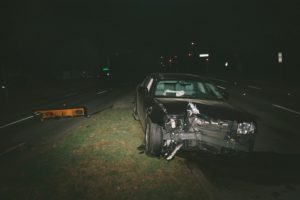
A car accident happens in a split second. One second you are headed home from work, contemplating what you will make for dinner. The next second your car is a mess you are injured from the crash—perhaps seriously—and everything around you is chaotic.
So, if you say “Oh, I’m so sorry, I just didn’t see you,” you are, in effect, stating you were responsible for the accident. Even if you tell the other driver “I’m so sorry,” and you only mean that you are sorry the accident occurred, those words could come back to haunt you, taken as you are sorry you caused the accident, even if that is not at all what you meant.
So, while it may sound cold, the only questions you should ask after an accident are those pertaining to contact information and insurance information or questions regarding injuries. The only statements you should make to the police officer at the scene of the accident are the bare-bones facts as you know them.
Speak the Simple Truth
Do not add anything, do not embellish. Answer the police officer’s questions honestly, but simply and without added information. The reason for this is that for all you know, the other driver could have been vastly exceeding the speed limit or weaving in and out of traffic before you were hit.
Again, never admit fault after a car accident. Once you have admitted fault, it is impossible to take it back, and it can make securing compensation for your injuries and damages much more difficult for you and for your personal injury attorney. The state of Alaska is a pure comparative fault state.
What Is Comparative Fault?
If the other driver was entirely at fault, then his or her insurance carrier will pay you compensation for your medical expenses, lost wages and other losses. If it turns out you share the blame for the accident, a jury will be asked to calculate the total dollar amount of your damages, and the percentage of fault each driver has. Your compensation will be reduced by a percentage equal to your share of fault.
As an example, if your damages are $100,000, but the jury determines you were 20 percent at fault for the accident, you would only receive $80,000 in damages. In short, refrain from admitting fault until the police officer has had a chance to make his or her own assessment of the accident.
Do I Need a Car Accident Attorney?
Click here to learn more about whether or not it would be helpful for your case to hire a car accident attorney.
Above all, we’re here to help. We understand that every client’s case is unique, and we want to answer the many questions you probably have. Contact one of our attorneys to set up a FREE consultation.
Hire an Attorney You Can Trust
Related FAQs
How Many Single Vehicle Accidents Are NOT the Driver’s Fault?
What Happens if I Was Injured but Partially Responsible for a Car Accident?
